Songchen Li
KV Cache Compression, But What Must We Give in Return? A Comprehensive Benchmark of Long Context Capable Approaches
Jul 01, 2024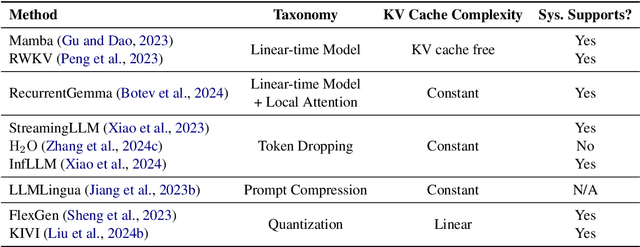

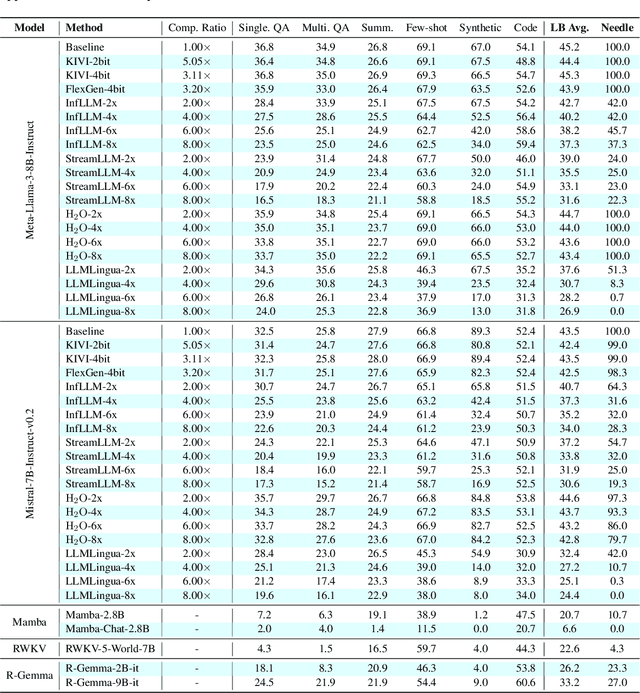
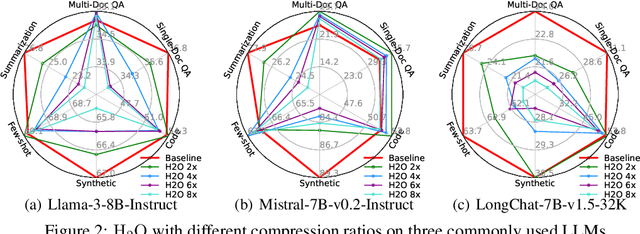
Abstract:Long context capability is a crucial competency for large language models (LLMs) as it mitigates the human struggle to digest long-form texts. This capability enables complex task-solving scenarios such as book summarization, code assistance, and many more tasks that are traditionally manpower-intensive. However, transformer-based LLMs face significant challenges with long context input due to the growing size of the KV cache and the intrinsic complexity of attending to extended inputs; where multiple schools of efficiency-driven approaches -- such as KV cache quantization, token dropping, prompt compression, linear-time sequence models, and hybrid architectures -- have been proposed to produce efficient yet long context-capable models. Despite these advancements, no existing work has comprehensively benchmarked these methods in a reasonably aligned environment. In this work, we fill this gap by providing a taxonomy of current methods and evaluating 10+ state-of-the-art approaches across seven categories of long context tasks. Our work reveals numerous previously unknown phenomena and offers insights -- as well as a friendly workbench -- for the future development of long context-capable LLMs. The source code will be available at https://github.com/henryzhongsc/longctx_bench
Understanding Different Design Choices in Training Large Time Series Models
Jun 20, 2024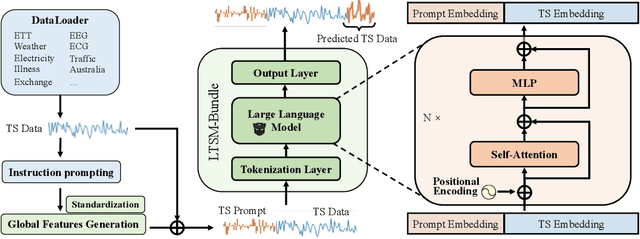


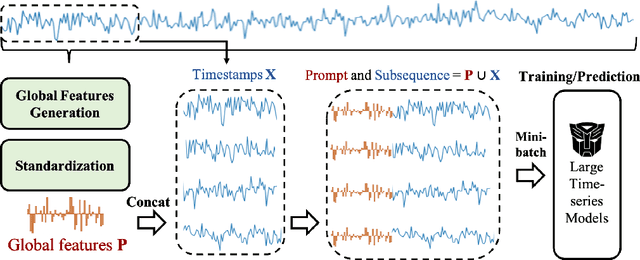
Abstract:Inspired by Large Language Models (LLMs), Time Series Forecasting (TSF), a long-standing task in time series analysis, is undergoing a transition towards Large Time Series Models (LTSMs), aiming to train universal transformer-based models for TSF. However, training LTSMs on heterogeneous time series data poses unique challenges, including diverse frequencies, dimensions, and patterns across datasets. Recent endeavors have studied and evaluated various design choices aimed at enhancing LTSM training and generalization capabilities, spanning pre-processing techniques, model configurations, and dataset configurations. In this work, we comprehensively analyze these design choices and aim to identify the best practices for training LTSM. Moreover, we propose \emph{time series prompt}, a novel statistical prompting strategy tailored to time series data. Furthermore, based on the observations in our analysis, we introduce \texttt{LTSM-bundle}, which bundles the best design choices we have identified. Empirical results demonstrate that \texttt{LTSM-bundle} achieves superior zero-shot and few-shot performances compared to state-of-the-art LSTMs and traditional TSF methods on benchmark datasets.
 Add to Chrome
Add to Chrome Add to Firefox
Add to Firefox Add to Edge
Add to Edge